Search
Search Results
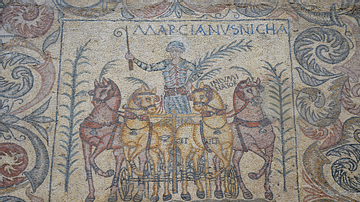
Article
Chariot Racing in Ancient Rome
Chariot racing was very big business in ancient Rome. There was a whole industry built around the factions, the four professional stables known by their team colour – Blue, Green, Red, and White –, providing all that was required for a race...
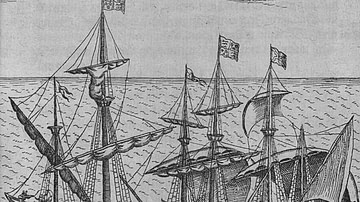
Article
The Sea Dogs - Queen Elizabeth's Privateers
The sea dogs, as they were disparagingly called by the Spanish authorities, were privateers who, with the consent and sometimes financial support of Elizabeth I of England (r. 1558-1603 CE), attacked and plundered Spanish colonial settlements...
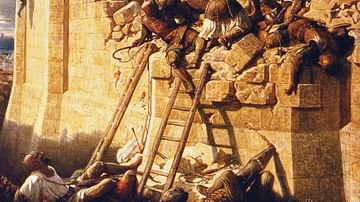
Article
The Siege of Acre, 1291 CE
The Siege of Acre in 1291 CE was the final fatal blow to Christian Crusader ambitions in the Holy Land. Acre had always been the most important Christian-held port in the Levant, but when it finally fell on 18 May 1291 CE to the armies of...
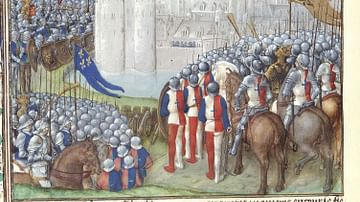
Article
The Siege of Damascus, 1148 CE
The siege of Damascus in 1148 CE was the final act of the Second Crusade (1147-1149 CE). Lasting a mere four days from 24 to 28 July, the siege by a combined western European army was not successful, and the Crusade petered out with its leaders...
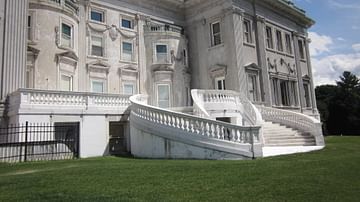
Article
The Gilded Age Estates of Staatsburg, New York
The great estates of the Gilded Age were more than lavish displays of wealth for the American aristocracy c. 1870-1917, they supported the economy of the local communities and encouraged development. As they declined, many of the surrounding...
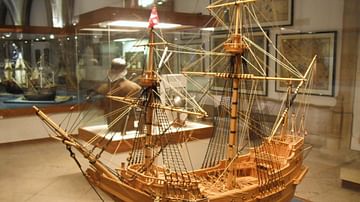
Article
The Capture of the Treasure Ship Madre de Deus
The treasure ship Madre de Deus (aka Madre de Dios) was a Portuguese vessel carrying hugely valuable cargo from the East Indies which was attacked and captured by a fleet of English privateers in the Azores in September 1592 CE. The ship...

Video
Unveiling Slavic Myths - A Conversation With Noah And Svetlana
Slavic cultures are far-ranging, comprising East Slavs (Russia, Ukraine, Belarus), West Slavs (Czech Republic, Slovakia, Poland) and South Slavs (the countries of former Yugoslavia plus Bulgaria), yet they are connected by tales of adventure...

Video
Emperor Tiberius #2 - The Unwilling Emperor
Tiberius the second emperor of Rome. He went thru many changes of fortune in his life - he was the stepson of Augustus however never the preferred heir. Born 43 BC, into a very distinguished Nobel-family in Rome, the Claudii. Throughout...

Definition
Ancient Greek Theatre
Greek theatre began in the 6th century BCE in Athens with the performance of tragedy plays at religious festivals. These, in turn, inspired the genre of Greek comedy plays. The two types of Greek drama would be hugely popular and performances...
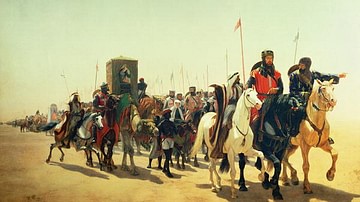
Definition
Crusades
The Crusades were a series of military campaigns organised by popes and Christian western powers to take Jerusalem and the Holy Land back from Muslim control and then defend those gains. There were eight major official crusades between 1095...